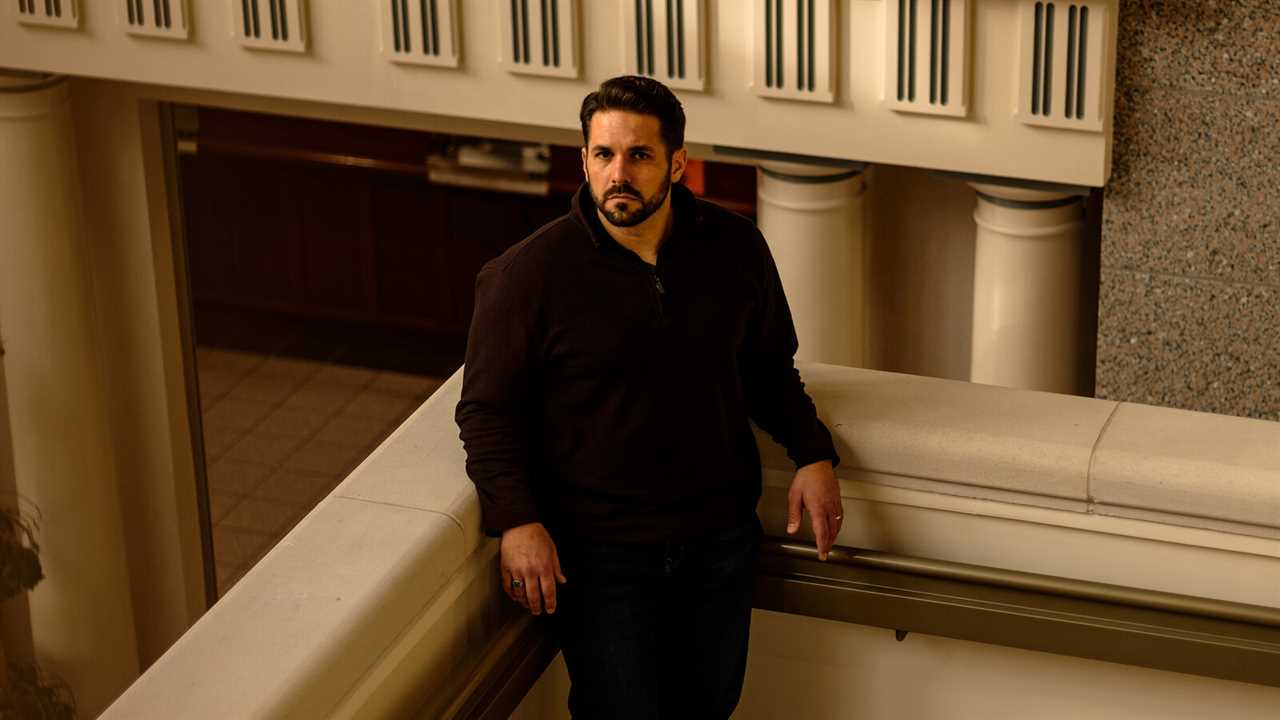
Scott Conger, the mayor of Jackson, Tenn., campaigned on a modest promise to improve local infrastructure. He planned to build sidewalks, open a senior center and repair the aging storm-water disposal system in his city of 68,000, about halfway between Nashville and Memphis.But as he begins his fourth year in office, Mr. Conger, 38, has adopted a new favorite cause: cryptocurrencies. He has pledged to give city employees the option of converting their paychecks into Bitcoin and has outlined plans to install a digital mining network in a deserted wing of City Hall. The aim, he said, is to make Jackson a Southeastern tech center.Like many Americans, Mr. Conger discovered crypto during the pandemic and soon fell down an internet rabbit hole. His plans have turned him into something of a celebrity in the crypto world, a strange distinction for the leader of a midsize industrial hub where Pringles potato chips are manufactured.“Bitcoin is a great financial equalizer,” Mr. Conger declared this month in an interview at City Hall. “It’s a hedge against inflation. It can bridge that wealth gap.”The ballooning popularity of Bitcoin and other digital currencies has given rise to a strange new political breed: the crypto mayor. Eric Adams, New York’s new mayor, accepted his first paycheck in Bitcoin and another cryptocurrency, Ether. Francis Suarez, Miami’s mayor, headlines crypto conferences. Now even mayors of smaller towns are trying to incorporate crypto into municipal government, courting start-ups and experimenting with buzzy new technologies like nonfungible tokens, or NFTs, to raise money for public projects.Their growing ranks reflect the increasing mainstream acceptance of digital currencies, which are highly volatile and have fallen in value in recent days. The mayors’ embrace of crypto is also a recognition that its underlying blockchain technology — essentially a distributed ledger system — may create new revenue streams for cities and reshape some basic functions of local government.“Mayors rationally want to attract high-income citizens who pay their taxes and impose few costs on the municipality,” said Joseph Grundfest, a business professor at Stanford. “Crypto geeks fit this bill perfectly.”But as with many ambitious crypto projects, it’s unclear whether these local initiatives will ultimately amount to much. So far, most are either largely symbolic or largely theoretical. And the mayors’ aims are partly political: Crypto boosterism has a useful bipartisan appeal, garnering popularity among both antigovernment conservatives and socially liberal tech moguls.ImageMr. Conger has outlined plans to install a digital mining network in a deserted wing of Jackson’s City Hall.Credit...Houston Cofield for The New York Times“You can do these things because you want to be associated with dudes with AR-15s, or you want to be associated with Meta,” said Finn Brunton, a technology studies professor at the University of California, Davis, who wrote a 2019 book about the history of crypto. “A lot of it is hype and hot air.”In Jackson, Mr. Conger has become a frequent guest on crypto podcasts, where he is hailed as a leader in “the army of Satoshi,” a reference to Bitcoin’s shadowy founder, Satoshi Nakamoto. A broad-shouldered former college football player, Mr. Conger sometimes goes to work wearing socks emblazoned with tiny orange Bitcoins.But his crypto ambitions have already encountered obstacles. While he’s close to establishing a system for city employees to invest a portion of their paychecks in Bitcoin, his mining proposal has proved impossible to institute under existing laws.Mr. Conger wants to use public money to plug a bank of computers into the Bitcoin network, an energy-guzzling process that could generate new coins for the city. He has even found a place to put the hardware: a suite of rooms in City Hall that have remained unfinished since the building opened in 1998. But a state law limits the types of assets that cities can invest in, partly to protect residents from market volatility. Mr. Conger and other local officials are working on new legislation to add Bitcoin to the list of permissible investments.In many ways, Mr. Conger is following in the footsteps of Miami’s Mr. Suarez, who has emerged as the crypto-bro-in-chief of mayors. (The two men occasionally text; Mr. Conger’s communications director calls it a “Bitcoin bromance.”) Mr. Suarez has positioned Miami as a “crypto capital” and thrown his support behind MiamiCoin, a crypto token that anyone can buy or mine, with a portion of the proceeds flowing into city coffers. He recently jousted on Twitter with Mr. Adams of New York over which of them loves crypto more.“Every time I would talk about crypto, my analytics would go through the roof,” Mr. Suarez,By: David Yaffe-Bellany
Title: The Rise of the Crypto Mayors
Sourced From: www.nytimes.com/2022/01/25/business/crypto-mayors.html
Published Date: Tue, 25 Jan 2022 10:00:22 +0000
Read More
Did you miss our previous article...
https://badpoliticians.com/us-politics/democrats-look-for-a-new-message-about-virus-with-some-voters-ready-to-move-on
 UK PoliticsWorld PoliticsVideosPrivacy PolicyTerms And Conditions
UK PoliticsWorld PoliticsVideosPrivacy PolicyTerms And Conditions
